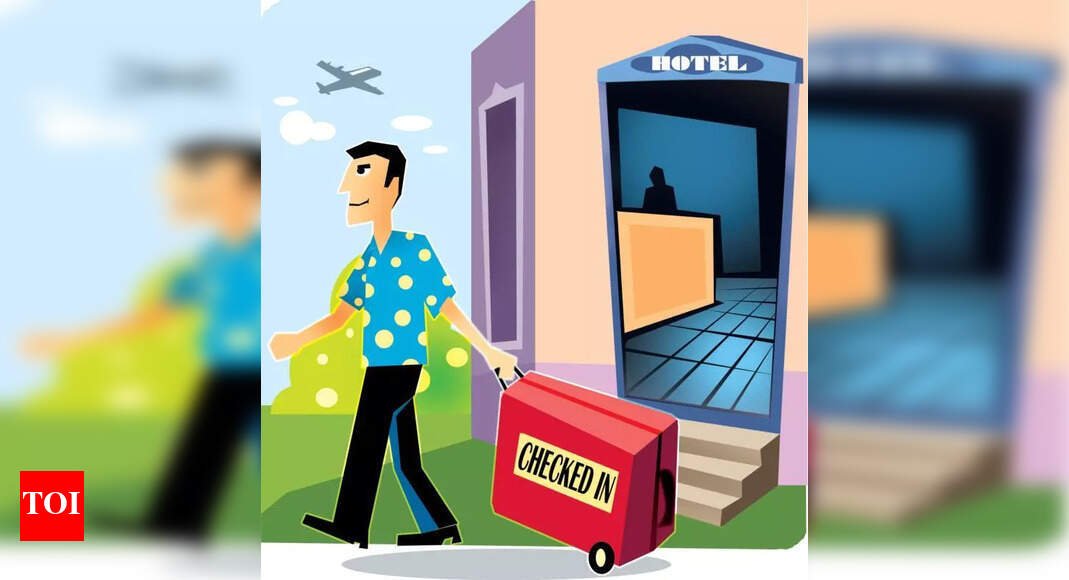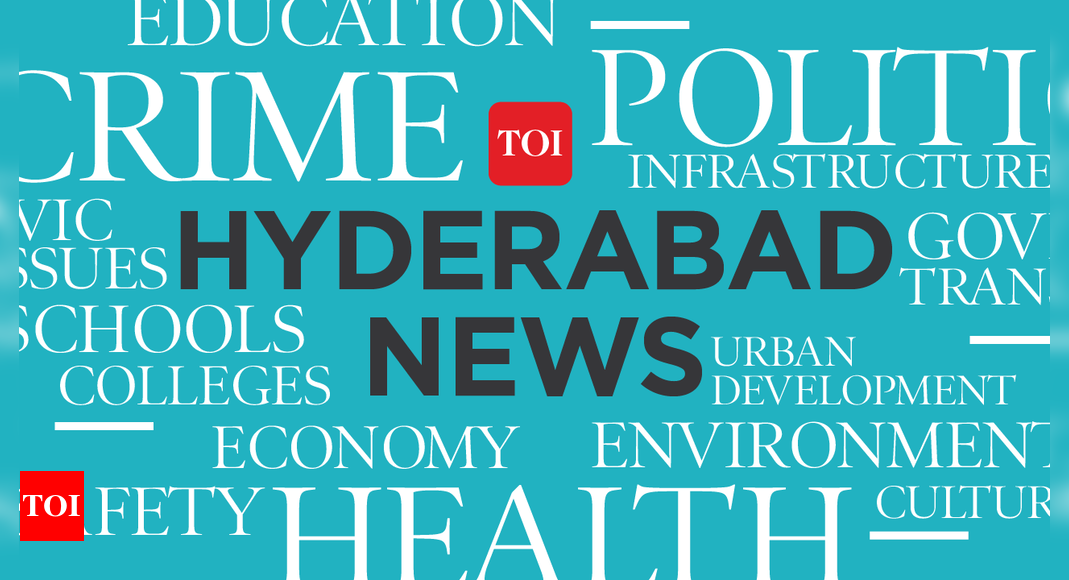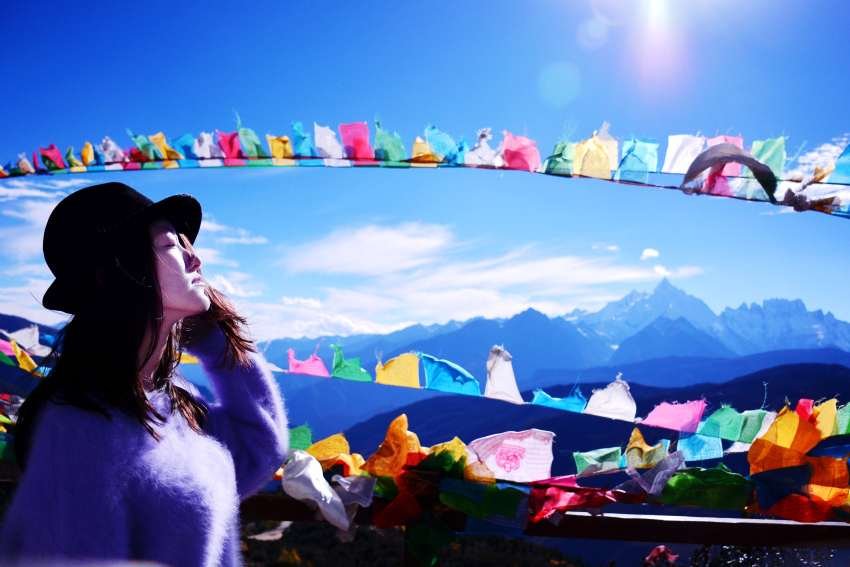Spiritual Travel
Devoleena Bhattacharjee shares how ‘Saath Nibhaana Saathiya’ marked the beginning of her spiritual journey

Mumbai, May 20 (IANS) Devoleena Bhattacharjee opened up about how her role in the popular TV show ‘Saath Nibhaana Saathiya’ was much more than just a career milestone.
She revealed that playing the character of Gopi, a devoted follower of Lord Krishna, sparked a deep spiritual awakening in her. She shared that what began as acting soon transformed into a genuine connection with the divine, inspiring her to explore devotion and spirituality—a journey that continues to enrich her life to this day. Speaking about the show completing 15 years, Devoleena reflected on how it marked the beginning of a profound spiritual journey.
The former ‘Bigg Boss’ contestant shared, “If I look back, my show completed 15 years.. but feels like it just happened yesterday.. I still feel the butterflies in me.. It was a life changing experience.. I entered the show replacing someone.. And it was a huge challenge.. but I enjoyed the opportunity to overcome the challenges.. and won hearts and became everyone’s favourite Gopi Bahu.. I’m thankful for all the love and appreciation. Though the show is over but it is still celebrated, my viewers has made Gopi Bahu immortal.”
Devoleena added, “The show was not just about enjoying success and fulfilling my acting dreams. But it was a beginning of spiritual journey.. while playing Gopi, I literally connected to Lord Krishna. I was playing a Krishna Bhakt in the show, but in no time it was real. I started reading books on Shri Krishna, and enjoyed a new journey of devotion and dedication.. it remains unchanged till date.”
Devoleena Bhattacharjee became a popular household name with her portrayal of Gopi Bahu in the show ‘Saath Nibhaana Saathiya.’ The family drama premiered in May 2010 on Star Plus and became one of the longest-running television series in India.
She is also recognized for participating in the reality TV show ‘Bigg Boss’ and has also portrayed lead roles in series such as ‘Dil Diyaan Gallaan’ and ‘Chhathi Maiyya Ki Bitiya.’
–IANS
ps/
Spiritual Travel
Indore hotels see highest occupancy in state due to rise in spiritual tourism | Indore News

Indore: Hotels in Indore circle have recorded highest occupancy in the state during April-July period against hotels in all other circles owned by Madhya Pradesh Tourism Development Corporation (MPTDC) due to a surge in spiritual tourism.MPTDC has divided its hotels across six regions in the state, and among all property, the Indore region has registered the highest occupancy. MPTDC owns 15 hotels in Indore region. Room occupancy in the Indore region has increased by 2.5 percent compared to the corresponding period a year ago, according to MPTDC.Typically, hotel occupancy sees a significant rise during monsoon and winter months when tourist traffic increases across the state. However, this year, a remarkable influx of visitors to spiritual hubs such as Ujjain and Omkareshwar has resulted in heightened demand for accommodation even during the scorching summer months.MPTDC Indore regional manager Ajay Shrivastava said, “Summers are usually off season for us but this time we received very good bookings. The bookings during the first four months of the new fiscal year has jumped 2.5 per cent from the same period a year ago.”The region has earned Rs 35 lakh during the April-July period, said Shrivastava.In the region, hotels in Ujjain, Omkareshwar, Maheshwar, Gandhi Sagar and Sailani received higher footfall of tourists than the previous year in the first four months of the fiscal 2024-25. The tourism department has added new rooms in many hotels and upgraded infrastructure to accommodate a higher number of tourists. The department has recently inaugurated a heritage property converted into a 20-room hotel in Ujjain.“We are working on adding more rooms and increasing amenities at our property to attract more influx of tourists. The influx of tourists from neighbouring states like Maharashtra, Gujarat and Rajasthan has also increased in the state,” said Shrivastava. According to data from the Madhya Pradesh Tourism Board, Ujjain, Maihar, Chitrakoot, Indore and Amarkanta were ranked among the top five tourist destinations in the state last year.
Spiritual Travel
Spiritual retreat turns sour: Family wins Rs 1 lakh payout over travel nightmare | Hyderabad News

Hyderabad: What was intended to be a spiritual retreat turned into a travel nightmare for a Hyderabad family after a tour operator failed to deliver on its promises. Following a series of service failures and last-minute changes, the district consumer commission in Ranga Reddy ordered a Delhi-based travel agency to pay 1.04 lakh in compensation for mental agony, out-of-pocket expenses, and litigation costs.The complainant, Aakula Venu Gopal, had booked a 10-night Char Dham Yatra tour package with the travel agency in April 2024, paying 90,000 in advance. However, just days before the journey, the agency abruptly cancelled the trip, citing a lack of hotel availability, and pressured him into accepting a Kashmir package instead. With no other viable option and fearing a substantial financial loss, Gopal reluctantly agreed.The ordeal worsened when Gopal, along with his elderly mother and young daughter, arrived in Delhi and travelled overnight to Katra. The hotel listed in their itinerary had no booking under their name. Stranded at 2am without mobile connectivity in Jammu & Kashmir, the family eventually managed to find alternative accommodation by 6am, well outside the promised package plan.Throughout the trip, the family encountered repeated instances of unbooked hotels, uncooperative agents, demands for additional money from the driver, and a lack of basic amenities, including meals, despite the package claiming to provide a MAP (Modified American Plan) arrangement. Due to delays and poor coordination, Gopal’s mother and daughter were unable to undertake the Vaishno Devi pilgrimage, despite having travelled all that way for it. Later in Srinagar, a promised houseboat stay was once again cancelled without prior notice, forcing the family to arrange accommodation at their own expense.Upon returning, Gopal approached the commission seeking a refund of 44,219 spent on food, alternative hotel bookings, and transport, along with 1 lakh as compensation. In its final order, the commission concluded that the agency had engaged in unfair trade practices. “Throughout the tour, the family faced considerable distress due to the negligent and unprofessional service of the agency. We are of the considered opinion that the agency committed a deficiency in service and caused great hardship during what was meant to be a leisure trip,” the commission said.The commission directed the company to pay 44,219 towards incurred expenses, 50,000 for mental agony, and 10,000 as litigation costs within 45 days.
Spiritual Travel
Not Only Indians but American, European, and Middle Eastern Tourists Embrace the Rising Trend of Festival-Centric Travel Driven by Social Media and Cultural Immersion

Published on
August 10, 2025 |
Not only are Indian travelers increasingly drawn to festival-centric travel experiences, but travelers from around the globe—especially from the United States, Europe, and the Middle East—are also embracing this trend. Social media platforms, coupled with a growing desire for cultural immersion, are reshaping how people choose their travel destinations. Festivals, often deeply rooted in tradition and offering once-in-a-lifetime experiences, have become major attractions for tourists seeking vibrant, authentic encounters.
Festival-centric travel has evolved beyond regional interest. It now includes an international array of travelers eager to partake in cultural celebrations that are often inaccessible through everyday tourism. From color-filled Holi celebrations in India to the dazzling Carnival in Brazil, these events offer a unique opportunity to engage in a place’s culture and history. The rise of social media has amplified the appeal of these festivals, making it easier for travelers to discover, plan, and engage with such events across the globe.
Social Media: The Driving Force Behind Festival-Centric Travel
Social media has revolutionized the way travel decisions are made, particularly among younger generations who are more likely to seek out experiences that are highly shareable and visually captivating. Platforms like Instagram, Facebook, and TikTok allow users to showcase vibrant festivals and cultural events, sparking curiosity and wanderlust in their followers.
For travelers from India, the allure of festivals like Diwali, Holi, and Durga Puja, alongside international festivals, has become a key motivator for choosing travel destinations. In addition to traditional religious observances, social media platforms often feature festivals in unexpected locations, drawing the attention of those who might not have considered traveling to such places otherwise.
American, European, and Middle Eastern travelers are also increasingly influenced by the visual appeal of festivals posted by friends or influencers, which leads them to explore new cultural destinations. The focus on festivals as central experiences in the tourism journey has sparked a boom in tourism for certain regions during peak festival seasons.
The Appeal of Cultural Immersion: Why Travelers Choose Festival-Centric Journeys
Festival-centric travel offers more than just the opportunity to witness elaborate parades or partake in vibrant street festivities. For many travelers, it is about cultural immersion. The chance to experience local customs, art, music, cuisine, and rituals provides deeper insights into a country or region’s way of life. For example, travelers to Spain may flock to experience the renowned La Tomatina or San Fermin festivals, while those visiting Thailand may align their schedules to join the Songkran Water Festival.
For Indian travelers, this type of immersion is particularly significant. India’s diverse cultural landscape provides a myriad of regional festivals that tourists from within the country and abroad seek to experience. Whether it is the religious fervor of Ganesh Chaturthi in Mumbai or the mesmerizing Pushkar Camel Fair, Indian festivals draw large crowds seeking an authentic taste of Indian culture. However, as Indians increasingly look to global festival destinations, they are not alone. Travelers from the U.S., Europe, and the Middle East also actively seek out religious and cultural festivals as their primary reason for travel.
This shift is reflective of a broader tourism trend where travelers, especially those from these regions, are moving away from conventional sightseeing and instead focusing on engaging with the culture in ways that provide richer, more meaningful experiences. Festival-centric trips often offer once-in-a-lifetime opportunities that would be hard to replicate on a regular tourist itinerary.
Religious Travel: A Key Component of Festival-Centric Tourism
Religious travel has always been a significant component of tourism, especially among those seeking spiritual fulfillment or deeper connections to their faith. In recent years, the crossover between religious and festival-centric travel has gained traction. Travelers from India, as well as from other parts of the world, are increasingly drawn to religious festivals for their spiritual significance and unique cultural experiences.
For Indian travelers, religious festivals such as Kumbh Mela, Maha Shivaratri, and Eid al-Fitr offer deep spiritual engagement, drawing millions to these events each year. Similarly, travelers from the Middle East, who follow Islam, are highly inclined to visit destinations such as Mecca and Medina for religious events like Hajj or Ramadan celebrations.
European travelers, especially those with Christian roots, often seek out religious events such as Christmas markets in Germany or Easter processions in Spain. The Middle East has also seen a rise in religious tourism, with many travelers visiting the region to participate in important religious festivals like Eid al-Adha or Christmas in Bethlehem.
The shared religious or cultural experiences at these festivals bring people closer together, fostering a sense of unity and community across national and cultural divides. Travelers who may have never visited a particular region before are drawn to these festivals because they provide both a spiritual journey and a cultural experience that cannot be replicated through traditional sightseeing.
The Economic Impact of Festival-Centric Travel
The economic impact of festival-centric tourism is undeniable. As these festivals become global events, they draw millions of visitors from around the world, providing a substantial economic boost to local economies. In many countries, festivals contribute directly to tourism revenue, creating jobs, supporting local businesses, and fostering international visibility.
In India, for example, festivals like Diwali and Holi are crucial drivers of tourism, especially in regions known for grand celebrations. The same is true for countries like Spain, where events like La Tomatina, Carnival in Rio, and Oktoberfest in Germany attract thousands of international visitors each year. The arrival of travelers increases demand for services such as hotels, transportation, restaurants, and entertainment.
Local communities also benefit from the economic ripple effects that festival-centric tourism brings. Employment opportunities in tourism-related sectors increase, providing jobs for locals who help organize, host, and manage the influx of visitors. These events also lead to the creation of temporary businesses, such as food stalls and souvenir shops, that thrive during the festival season.
This increased economic activity encourages local authorities to invest in improving infrastructure and services, further enhancing the travel experience for future tourists. As festival-centric tourism continues to grow, so does its importance as a sustainable economic model for many regions.
The Rise of Luxury Festival Travel: Catering to High-Spending Tourists
While traditional festival-centric travel is often about affordable experiences and local engagement, there is a growing demand for luxury travel experiences centered around these festivals. High-net-worth individuals from countries like the U.S., Europe, and the Middle East are increasingly seeking exclusive festival experiences that offer both opulence and cultural immersion.
Luxury travel companies are beginning to curate premium festival experiences that include private viewings, VIP access, gourmet dining, and personal guides. These tours provide an elevated experience for travelers who want to enjoy festivals in the utmost comfort while still participating in the cultural aspects of the events. Exclusive access to behind-the-scenes activities, private performances, and bespoke travel itineraries cater to a select group of travelers seeking the ultimate in both luxury and culture.
For example, in destinations like Bali, travelers can indulge in private ceremonies during local festivals, such as Nyepi (Balinese Day of Silence), while enjoying stays in high-end resorts. Similarly, the Carnival in Rio now offers premium VIP experiences for those seeking a more lavish way to enjoy this vibrant event. These tailored offerings are reshaping how travelers experience traditional festivals, transforming them into luxury experiences.
A New Approach to Sustainable Festival-Centric Tourism
As more travelers embrace festival-centric journeys, there is also a rising demand for sustainable tourism practices to ensure that these events and their local environments are not harmed by the influx of tourists. Sustainability efforts focus on reducing waste, promoting eco-friendly transportation options, and supporting local artisans and vendors who participate in festivals.
Travel companies and governments are increasingly prioritizing sustainable practices in the management of festivals. This includes encouraging visitors to respect local traditions, minimizing their environmental footprint, and supporting businesses that follow sustainable practices. For example, festivals like Diwali and the Carnival in Rio are being reimagined to promote eco-friendly practices, such as reducing plastic waste and adopting green technologies.
Conclusion: A Global Trend Fueled by Social Media and Cultural Exploration
Festival-centric travel, powered by social media and a global desire for cultural exploration, is transforming the way people approach their vacations. Indian, American, European, and Middle Eastern travelers are all drawn to the unique experiences and immersive cultural opportunities that festivals provide. Whether for religious reasons, cultural engagement, or simply the allure of vibrant celebrations, festival-centric travel offers a diverse range of benefits for both tourists and local communities.
As more people seek out these extraordinary cultural experiences, the trend is set to continue its rise. With economic and social benefits that go far beyond just tourism revenue, festival-centric travel is poised to become a central pillar of global tourism in the coming years. As the world continues to embrace these colorful, immersive events, travelers will find new opportunities to experience the world in ways that are rich in culture, connection, and community.
-

 Brand Stories3 weeks ago
Brand Stories3 weeks agoBloom Hotels: A Modern Vision of Hospitality Redefining Travel
-

 Brand Stories2 weeks ago
Brand Stories2 weeks agoCheQin.ai sets a new standard for hotel booking with its AI capabilities: empowering travellers to bargain, choose the best, and book with clarity.
-

 Destinations & Things To Do3 weeks ago
Destinations & Things To Do3 weeks agoUntouched Destinations: Stunning Hidden Gems You Must Visit
-

 Destinations & Things To Do2 weeks ago
Destinations & Things To Do2 weeks agoThis Hidden Beach in India Glows at Night-But Only in One Secret Season
-

 AI in Travel3 weeks ago
AI in Travel3 weeks agoAI Travel Revolution: Must-Have Guide to the Best Experience
-

 Brand Stories1 month ago
Brand Stories1 month agoVoice AI Startup ElevenLabs Plans to Add Hubs Around the World
-

 Brand Stories1 month ago
Brand Stories1 month agoHow Elon Musk’s rogue Grok chatbot became a cautionary AI tale
-

 Brand Stories3 weeks ago
Brand Stories3 weeks agoContactless Hospitality: Why Remote Management Technology Is Key to Seamless Guest Experiences
-

 Asia Travel Pulse1 month ago
Asia Travel Pulse1 month agoLooking For Adventure In Asia? Here Are 7 Epic Destinations You Need To Experience At Least Once – Zee News
-

 AI in Travel1 month ago
AI in Travel1 month ago‘Will AI take my job?’ A trip to a Beijing fortune-telling bar to see what lies ahead | China
